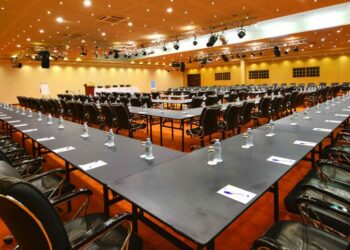By Dr. Ian Clarke
The World Economic Forum has rated Uganda’s labour productivity among the bottom 25, out of 144 countries over the past five years. Also, the Global Competitiveness Report 2014 indicated that Uganda has the lowest labour productivity compared to the other East African countries. Ugandans have been ranked as the laziest people in East Africa with the lowest labour productivity, in terms of value added per worker. According to a recent article in the Monitor Newspaper, the poor performance is fueled by a poor work ethic, a lack of a sense of urgency, and cultural influences.
Many Ugandans are annoyed at being called lazy, though others agree that Ugandans do have a poor work ethic. My opinion is that as human beings, we are all born lazy, and have to discipline ourselves to counteract this innate tendency. I know that I am lazy and only overcome my natural laziness through discipline. This innate laziness gives us an aversion to change, because this means having to learn something new, so we automatically resist change because we don’t want to make the effort. Many people feel they studied when they were at school and university and this should serve them for life, but the world is continually changing and we must become lifelong learners. We are far more comfortable doing what is familiar than having to master new skills. I have witnessed medical workers who deliberately broke equipment, because they could not be bothered to learn how to use it. Then they stood back and said ‘It has refused’, failing to take any personal responsibility and laying the blame on an inanimate machine. As the saying goes ‘If all else fails, read the instructions’.
The problem we have in today’s world is the rapid rate of change, which is set against our love for traditions; we love getting dressed up in our busutis and Kanzus to attend functions, but we are not so good at adapting to the changing world around us. This week I sat in a board meeting in which some of the board members demonstrated that they had not opened their minds to new thinking in a very long time, leading me to get frustrated by their lack of understanding of good governance, or how their actions could adversely affect the wellbeing of the institution they are supposed to govern. This is simply being backwards, and I have seen such behaviour in government and statutory authorities, which have been invested with powers to develop a sector or profession. Many of the people on such boards are old, and prefer to think in traditional ways, thus preventing whole professions, such as the nursing profession, from modernizing in line with global practice. Such people are the cork in the bottle, in terms of the development of Uganda, because they are lazy thinkers and have failed to make the effort to educate themselves as to what is going on in the world, so that Uganda can keep up. Thus our little country becomes a backwater, outside the mainstream of global progress.
This laziness of thinking and fear of change is making Uganda less productive and more backwards: Kampala and Nairobi used to compete for business; Nairobi was bigger and faster, but Kampala was safer and less hectic. Now the gap between Nairobi and Kampala is so wide that multinational organizations automatically locate their HQs in Nairobi, because while Nairobi is taking its place in the world as a modern city, Kampala is essentially still a colonial town built for 60,000 people, with a collection of surrounding villages. This is due to collectively lazy, backwards thinking. We have had city plans on top of city plans, but when it comes to implementation of the smallest incremental improvement, there is a fight by some entrenched group – the bodas, boda cyclists, UTODA, the street vendors, the market traders, Kampala City Council itself, none of whom want change. Therefore nothing happens, and we struggle through for another five years in forlorn hope that things will get better ‘somehow’. Even minor changes which could be made, such as the abolition of street parking and the expansion of existing highways to accommodate the traffic, or the introduction of bus lanes, does not happen, yet we dream of overhead railways. Dream on.
Ugandans are no more lazy than any other human being, and put in the right circumstances they can hold their own with anyone in the world. However, Ugandans have lost hope in the system and resorted to other methods of improving their lot, such as hustling, ‘eating where they work’, scamming, or just doing their own thing, because they don’t see any point in having a work ethic. Experience has taught those on the lower rungs of the ladder that there is no benefit in working hard, unlike the Koreans or the Indians, because those on the higher rungs of the ladder will simply frustrate them. Ugandans don’t have good role models to show them that honesty, integrity and discipline pays, so why bother, why not join the rest and be lazy of mind – and body.
Dr. Ian Clarke is a Physician and Chairman of International Medical Group.
Do you have a story in your community or an opinion to share with us: Email us at editorial@watchdoguganda.com









